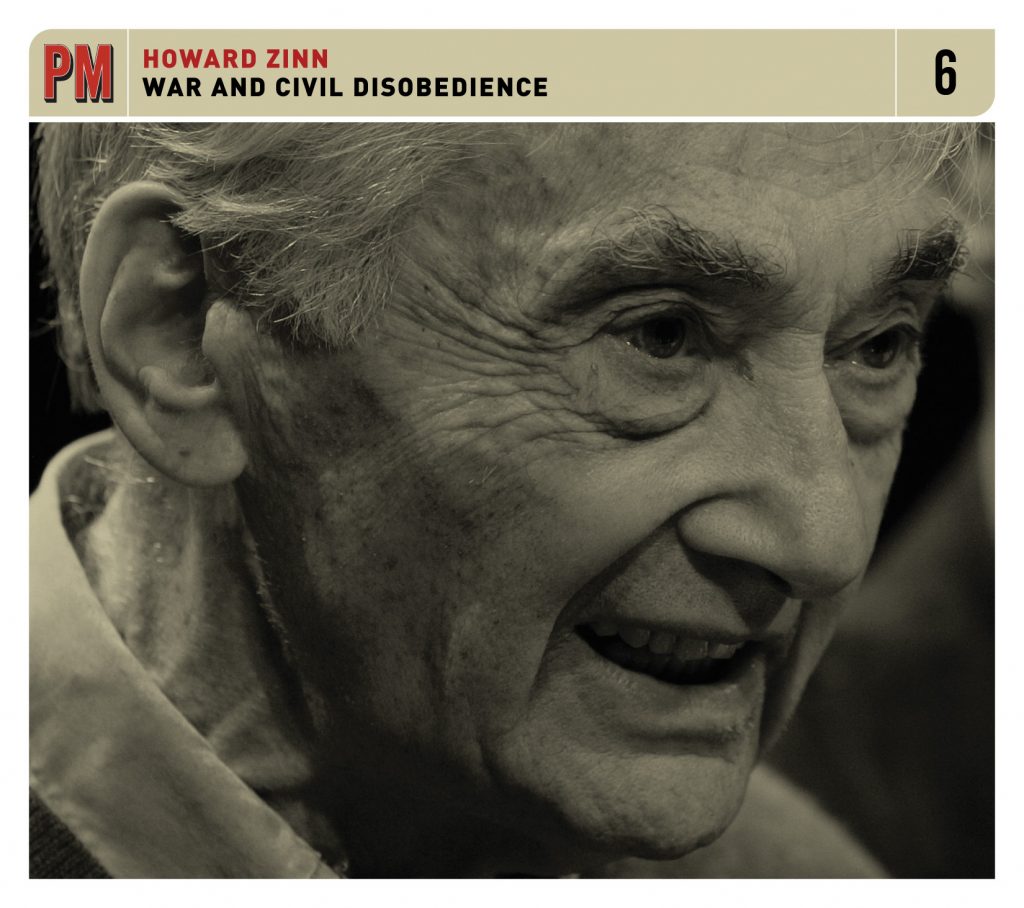By John Duerk
Political Media Review
November 4, 2010
For many, the work of academics like Howard Zinn is an invaluable resource because he manages to inform and inspire in a way that is accessible to anyone with a sympathetic ear. On this audio recording of a lecture from 2008, he explores the complex phenomena of war and how it relates to United States foreign policy. As one might expect, there are a handful of very important themes that he touches upon that do not receive adequate attention or analysis by everyday people or pundits in the mainstream media.
Referring to the conflict in Vietnam, Zinn explains how our political leaders often justify the necessity of fighting our adversaries. Using our fear as leverage, they convince us that if we do not take military action and maintain our resolve regardless of how bleak the situation might appear, then we risk a much worse outcome.
Next, Zinn points out that we should question the motivations of public officials and what they tell us is important to them. Not surprisingly, it is always possible that they will lie to the citizenry in pursuit of their agenda. He argues that this happens even in a democratic nation because political leaders do not want to lose their power and control.
Lastly, Zinn discusses the importance of understanding history. Why? Historical knowledge empowers people to recognize patterns of military aggression. Just consider the wars we have fought against other countries such as Mexico, the Philippines, and Vietnam, as well as our occupation of Cuba after the Spanish-American War – all of which he contends are evidence of a misdirected desire to expand. At different points in his lecture he also mentions both Iraq and Afghanistan. Beyond all of these notable examples, he personalizes this matter by sharing his own experience as a bombardier in World War II and explains how technology separates a person from the indiscriminate killing that occurs.
While there is great value in Zinn’s lecture, it has some serious flaws. First, in his pursuit of breadth he sacrifices depth, in that, he mentions a number of countries we have fought, but does not talk about any of the wars in detail. Highlighting a pattern in US foreign policy to make one’s argument is important, but sometimes it is better to do more with less during a short talk like this and elaborate on a couple of specific cases.
A second flaw is Zinn’s discussion of civil disobedience. Yes, he mentions some historical examples of protest, but this is not enough if he truly wants to stop war altogether. Here there needs to be more discussion as to what has worked in the past so people walk away with concrete ideas about how they can organize and resist. Both of these issues aside, the major themes in this lecture are definitely worth thinking about because they represent an important contribution to the discourse on war that you are not likely to get from many other sources.







